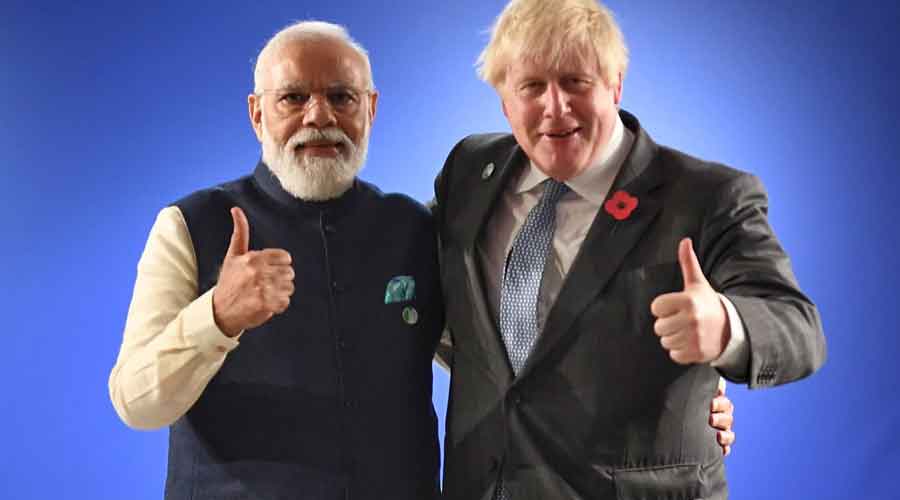On Sunday, some social media users had commented that Prime Minister Narendra Modi looked lost among the gaggle of leaders when they posed for a picture in front of the Trevi Fountain after the G20 summit in Rome.
A day later, unwittingly or otherwise, the pendulum swung to the other end.
Prime Minister Modi’s decision to hug UN secretary-general António Guterres at COP26 in Glasgow on Monday was described as “cringe-worthy” by the Daily Mail.
The Mail reported: “India’s Prime Minister Narendra Modi and United Nations secretary-general António Guterres shared an awkward moment after the former went in for a hug at COP26 — despite Britain being gripped by high Covid case numbers on the opening day of the climate conference.”
It went on: “The Indian premier shared the awkward moment with Guterres as they met at the start of the Glasgow conference. Modi has been pictured getting cozy with several leaders over the course of the first days of COP26.
“He has been pictured with his arms wrapped around Prime Minister Boris Johnson, Luxembourg’s Xavier Bettel and Canadian PM Justin Trudeau as world leaders arrived in Glasgow after many were at the G20 summit in Rome this weekend.”
It added: “The cringe-worthy moment comes on the same day that Modi pledged that India will target net-zero carbon emissions by 2070 — two decades later than the targets for the conference.”
Among those who have warned that COP26 will cause a surge in Covid cases is Devi Sridhar, professor and chair of Global Public Health at Edinburgh University.
She is an Indian from America and has become high profile during the pandemic. She sits on the Scottish government’s Covid advisory group.
She said COP26, with 25,000-30,000 delegates and more than 100 world leaders in attendance, would make the coronavirus situation in Scotland worse and lead to new curbs on freedoms. “A mass event — with major movement of people in and out — with an infectious virus will cause an increase in cases... which triggers need for further restrictions.”
The summit was taking place at “probably (the) worst timing ever in a pandemic”, Sridhar said, as winter approaches and socialising increasingly takes place indoors.











